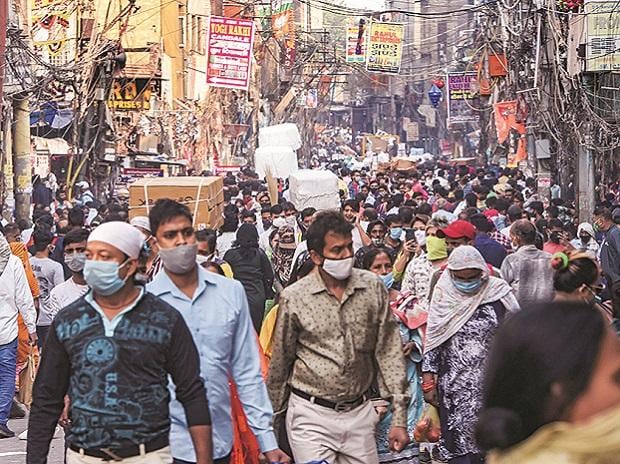There is so far no evidence that the second wave of COVID-19 in the country is due to variants of the virus, but it is possible, said noted virologist Shahid Jameel.
He, however, stressed that the sharp rise in coronavirus infections seen recently is mainly because people have stopped following COVID-appropriate behaviour.
In an interview with PTI, Jameel, who has won the coveted Shanti Swarup Bhatnagar Prize, said the rollout of vaccines has caused a false sense of security among people.
"But vaccines won't work unless we take them. As of March 25, only 8.1 million people have taken both doses, which is 0.6 per cent of India's population. Further, 46.4 million people or 3.3 per cent of India's population have taken only one dose, which gives weak or no protection," he said.
Jameel further said there is so far no evidence that the second wave is due to variant viruses. "But this is possible".
"The mortality rate in the second wave appears to be no different. In fact, it appears to be lower than what we saw in August and September 2020, during the first peak," said Jameel, who is presently the director of the Trivedi School of Biosciences at Ashoka University.
He said the second wave is mainly because there are enough susceptible people in the country and in the past four months most of the people have stopped following Covid-appropriate behaviour such as wearing masks and avoiding crowded places.
"Further, all commercial and recreation activities are back to normal even as the pandemic is still there," Jameel said.
Registering a steep spike in COVID-19 cases for the 16th day in a row, India on Friday saw 59,118 new coronavirus infections in a day, the highest single-day rise so far this year. The active caseload has breached the 4-lakh mark again after around three-and-half months.
Asked whether a double mutant variant of the coronavirus is causing this surge in the number of infections, Jameel said not necessarily, but it can, depending on the properties of the new mutant viruses.
"As for the double mutant found in India, we don't yet know if it is responsible for the surge being observed in some states. Epidemiological correlation is required for that," he said.
A double mutant variant is the coming together of two mutations in the same virus. In the Indian context, this refers to two mutations L452R and E484Q both within the receptor-binding domain of the spike protein, coming together, Jameel explained.
Spike proteins play an important role in how these viruses infect their hosts.
It is common for mutants to combine, he said.
"The UK variant, for example, carries 23 mutations, of which eight are in the Spike protein. The South African variant has nine mutations of which six are in the Spike protein. The Brazil variant has 16 mutations of which 10 are in the spike protein," he said.
Explaining the reason behind such mutations, Jameel said some of these mutations get 'selected' because they offer some advantage to the virus such as better infectivity, ease of transmission from one host to another, evasion of antiviral immunity.
He said the effectiveness of current vaccines, Covaxin and Covishied, against the double mutant variant has not yet been tested.
India has detected a new "double mutant" COVID-19 variant of SARS-CoV-2 in Delhi, Maharashtra and some other places in addition to the three "variants of concern" -- first noticed in the UK, South Africa and Brazil -- that have been found in at least 18 states and union territories.
The ministry, however, said it could not be sufficiently established yet if these variants were behind the recent spike in COVID-19 cases in some states.
(Only the headline and picture of this report may have been reworked by the Business Standard staff; the rest of the content is auto-generated from a syndicated feed.)
 Dear Reader,
Dear Reader,
Business Standard has always strived hard to provide up-to-date information and commentary on developments that are of interest to you and have wider political and economic implications for the country and the world. Your encouragement and constant feedback on how to improve our offering have only made our resolve and commitment to these ideals stronger. Even during these difficult times arising out of Covid-19, we continue to remain committed to keeping you informed and updated with credible news, authoritative views and incisive commentary on topical issues of relevance.
We, however, have a request.
As we battle the economic impact of the pandemic, we need your support even more, so that we can continue to offer you more quality content. Our subscription model has seen an encouraging response from many of you, who have subscribed to our online content. More subscription to our online content can only help us achieve the goals of offering you even better and more relevant content. We believe in free, fair and credible journalism. Your support through more subscriptions can help us practise the journalism to which we are committed.
Support quality journalism and subscribe to Business Standard.
Digital Editor

RECOMMENDED FOR YOU